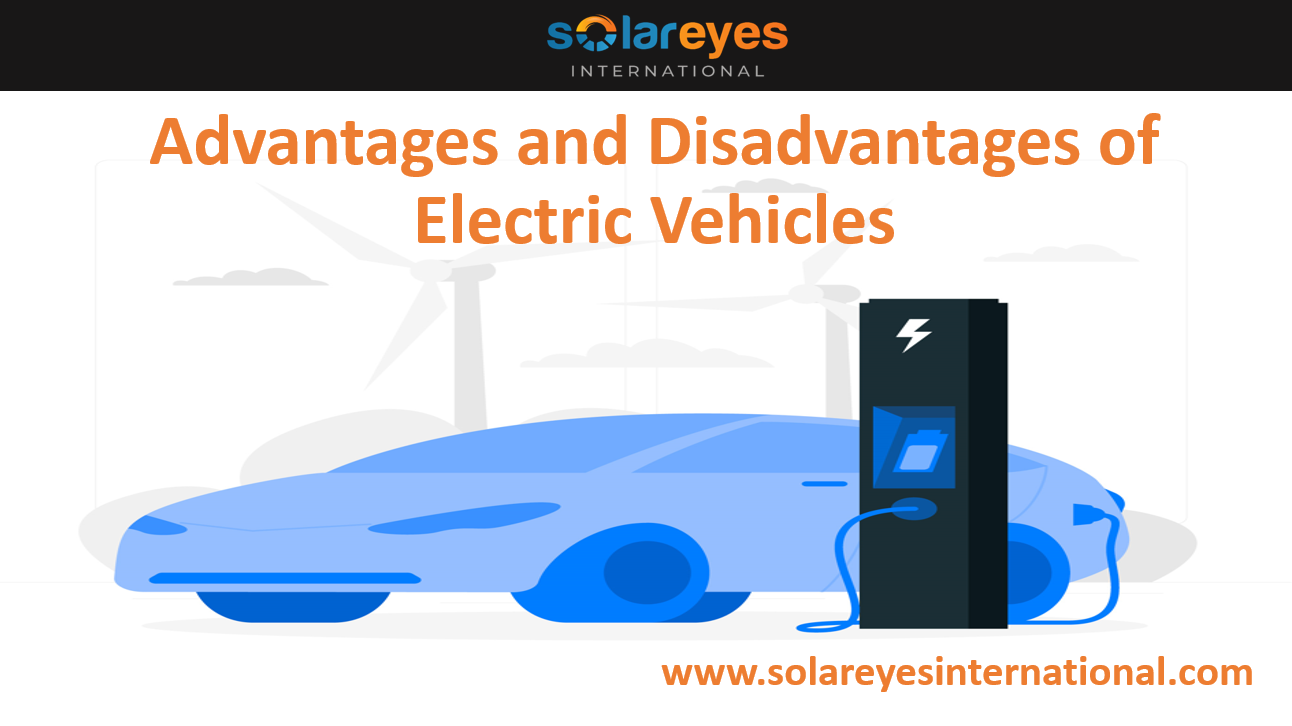Advantages and Disadvantages of Electric Vehicles

Background of Electric Vehicles
Electric vehicles (EVs) have been hailed as the future of transportation due to their low carbon footprint and potential to reduce our dependence on fossil fuels.
However, like any new technology, EVs come with their own set of advantages and disadvantages.
Electric vehicles have come a long way since their inception in the late 1800s, but it wasn’t until the last decade that they started to gain mainstream acceptance.
The early days of electric vehicles were plagued by several issues, including limited battery range, lack of charging infrastructure, and a high price tag. However, these issues have been largely resolved in recent years, thanks to advances in technology and government incentives.
One of the major reasons for the rise in popularity of electric vehicles is the increasing concern over climate change and the need to reduce greenhouse gas emissions.
***ALSO CHECK: The Rise of Electric Vehicles in United States
Common Electric Vehicles Questions and Answers
Electric vehicles produce zero emissions and are therefore considered a more environmentally friendly alternative to gasoline-powered vehicles. This makes them an attractive option for consumers who are environmentally conscious and looking to reduce their carbon footprint.
Another reason for the growing popularity of electric vehicles is the lower cost of ownership compared to gasoline-powered vehicles.
While electric vehicles may have a higher initial purchase price, they often have lower operating costs as they require less maintenance and electricity is cheaper than gasoline.
Additionally, governments around the world are offering incentives, such as tax credits and rebates, to encourage consumers to purchase electric vehicles.
As the popularity of electric vehicles continues to grow, the demand for charging infrastructure is also increasing.
Top 10 Global Solar Street Lights Companies (suppliers)
Governments and private companies are investing heavily in building a network of charging stations to ensure that electric vehicle owners have access to convenient and reliable charging options.
In addition, advances in technology are making it easier to charge electric vehicles at home, further reducing the need for public charging infrastructure.
Overall, electric vehicles are poised to play a significant role in the future of transportation. With advancements in technology and increasing government support, electric vehicles are becoming more accessible and affordable to the masses.
10 Ways of Financing your Solar System
As more consumers make the switch to electric vehicles, we can expect to see a reduction in greenhouse gas emissions, an improvement in air quality, and a more sustainable future.
Advantages of Electric Vehicles
- Eco-Friendly: One of the biggest advantages of EVs is their eco-friendliness. Electric cars produce zero emissions, reducing the carbon footprint caused by traditional gasoline-powered vehicles. This makes them an excellent option for individuals who care about the environment and want to reduce their carbon footprint.
- Low Maintenance: EVs have fewer moving parts compared to gasoline-powered cars, meaning they require less maintenance. This helps save money on servicing and repairs in the long run.
- Cost-Effective: While the initial cost of EVs may be higher than traditional cars, their operating costs are significantly lower. EVs require less maintenance, no gasoline, and reduced energy costs.
- Noise Pollution: Electric vehicles are much quieter than gasoline-powered cars. This makes them an excellent choice for those who live in busy urban areas and don’t want to contribute to noise pollution.
Disadvantages of Electric Vehicles
- Limited Range: The biggest disadvantage of EVs is their limited range. Most electric cars can only travel a maximum of 100-200 miles on a single charge. This is due to the limitations of current battery technology. However, with that being said, electric vehicles’ range has been increasing rapidly every year.
- Charging Time: Recharging an electric vehicle takes considerably longer than filling up a gas tank. This can be a significant disadvantage for those who frequently travel long distances.
- Charging Infrastructure: Electric vehicles need to be charged regularly, and this requires a network of charging stations. However, the infrastructure for EV charging is still in its early stages and not as widespread as gasoline stations.
- Upfront Cost: Although the operating costs of EVs are lower than those of gas-powered cars in the long run, the upfront costs are still higher. This may deter some buyers from purchasing an electric vehicle.
- Production of electric vehicle batteries is not 100% ecofriendly: Here is another point to note on electric vehicle – debatable. Another disadvantage of battery powered electric cars is that the production of those batteries is very much NOT ecofriendly. One can argue that mining of lithium is destructive to the environment and hence not fully sustainable.
Critical Points on Electric Vehicles. Are they really Ecofriendly?
Electric vehicles (EVs) are considered to be eco-friendly because they produce fewer greenhouse gas emissions compared to traditional vehicles powered by internal combustion engines.
EVs also do not emit pollutants such as nitrogen oxides, particulate matter, and volatile organic compounds that contribute to air pollution.
However, the eco-friendliness of EVs is heavily dependent on how the electricity used to power them is generated. If the electricity comes from fossil fuel-powered sources such as coal or natural gas, the emissions from producing that electricity could negate the environmental benefits of EVs.
Solar Panels on Your Roof in South Africa? Here is How to Qualify for a Tax Rebate
However, if the electricity comes from renewable sources such as wind or solar power, the emissions from EVs would be negligible.
Another consideration is the environmental impact of producing the batteries that power EVs. The production of the batteries requires the mining and processing of materials such as lithium and cobalt, which can have negative environmental consequences if not managed properly.
Electric car batteries also have a limited lifespan and must be disposed of properly to prevent further harm to the environment.
In summary, while electric vehicles can be considered eco-friendly due to their lower emission levels, their true environmental impact is dependent on the source of the electricity used, and the environmental impact of battery production and disposal.
Conclusion
Electric vehicles are an excellent choice for those who want to reduce their carbon footprint and save money on maintenance and operating costs in the long run.
However, their limited range and charging infrastructure may pose a challenge for some. As battery technology and charging infrastructure continue to improve, electric vehicles will become more accessible and affordable for the masses.
FOLLOW US ON SOCIAL MEDIA
Follow us on LINKEDIN, FACEBOOK, TELEGRAM GROUP and WHATSAPP.
HOW TO SIZE A SOLAR SYSTEM – 5 clear steps anyone can follow
HOW TO START A SOLAR COMPANY – do these 6 things and make money through solar







Another disadvantage of battery powered electric cars is that the production of those batteries is very much NOT ecofriendly. Mining of lithium is destructive to the environment. Not sustainable.
True that Rob. Thanks for adding this wonderful point